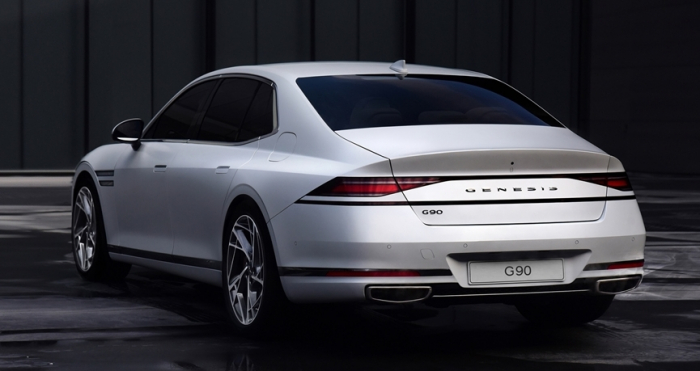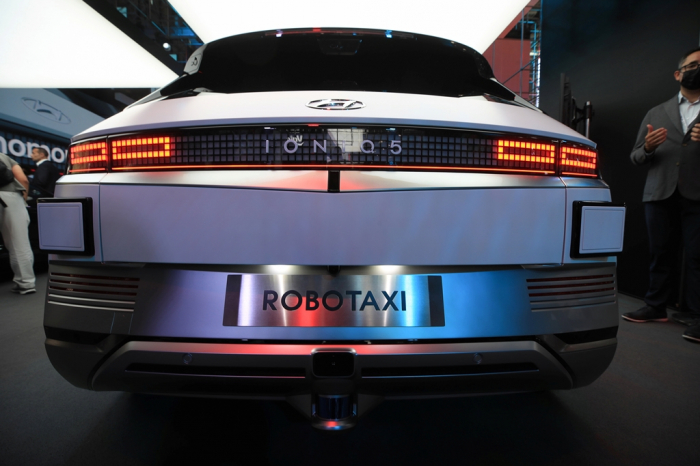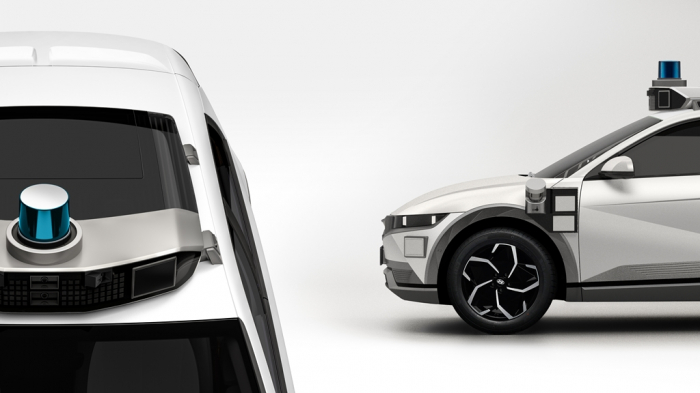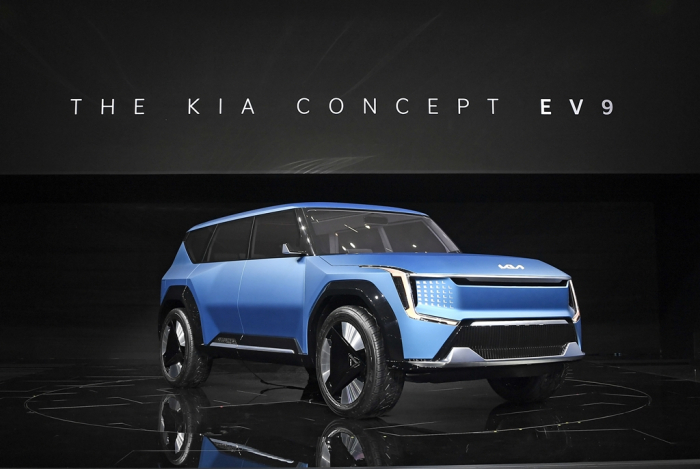Future mobility
Hyundai, Kia to launch Level 3 self-driving Genesis G90, EV9 in 2023
The automakers aim to roll out fully autonomous driving cars by 2030 to compete with market leader Tesla
By Jul 15, 2022 (Gmt+09:00)
3
Min read
Most Read
Samsung shifts to emergency mode with 6-day work week for executives


CJ CheilJedang to sell feed, livestock unit for $1.4 bn


Samsung Electronics' key M&A man returns; big deals in the offing


Affinity to buy SK Rent-a-Car at $572 mn, more deals expected


Keppel REIT to sell Seoul-based prime office T Tower



South KoreaŌĆÖs Hyundai Motor Group will launch its most-advanced Level 3 autonomous cars next year, starting with Hyundai Motor Co.'s flagship luxury Genesis G90 sedan and Kia Corp.'s large-size electric sport utility vehicle, the EV9.
The groupŌĆÖs commercial launch of the self-driving vehicles equipped with its advanced technology is designed to help Hyundai and Kia better compete with electric car giant Tesla Inc., which is also the global frontrunner in autonomous driving.
According to Hyundai officials on Friday, the company plans to use its Level 3 autonomous driving technology in the G90, which is due out at this yearŌĆÖs end, and apply the technology to other Hyundai cars later.
For Hyundai affiliate Kia, its first Level 3 self-driving car will be the EV9 SUV, which is set to launch in the first half of next year.
The automotive conglomerate aims to roll out fully autonomous driving cars by 2030 after pilot services on real roads in 2023.
The group said the self-driving G90 and EV9 vehicles can travel at up to 80 km an hour on the Korean highways, faster than the current global limit of 60 km/h.
Through the over-the-air programming (OTA) updates of the software for autonomous driving-related electronics and control devices, the two models will be able to run at 120 km/h, the legally permitted speed limit on Korean expressways.

HALF OF NEW CARS WILL BE LEVEL 3 BY 2030
Currently, most mass-produced automobiles with self-driving capabilities are based on Level 2 technology of partial driving automation. At Level 2, vehicles with advanced driving assistance systems (ADAS) can take over steering, acceleration, and braking in specific scenarios. But the driver must remain alert and is required to actively supervise the technology at all times.
HyundaiŌĆÖs current Genesis models are equipped with Level 2 driving automation ŌĆō Highway Driving Assist (HDA).
Level 3, known as conditional driving automation, uses various ADAS equipment and artificial intelligence to make decisions based on changing driving situations around the vehicle.┬ĀPeople inside the vehicle do not need to supervise the technology, which means they can engage in other activities, although the driver still needs to be ready to take back control at any time.
The level of automation conforms to the US Society of Automotive Engineers (SAE), which defines six levels of vehicle autonomy, ranging from Level 0 ŌĆō no driving automation ŌĆō to Level 5 ŌĆō full driving automation.
According to market research firm Navigant Research, half of the new cars will have Level 3 autonomous driving capabilities by 2030.

INCREASINGLY COMPETITIVE SEGMENT
Earlier this year, Hyundai Motor launched a pilot robotaxi service in Seoul.
Dubbed RoboRide, the pilot service used HyundaiŌĆÖs electric crossover IONIQ 5, boasting Level 3 or Level 4 autonomous driving technology depending on road conditions.
To prepare for a global commercial service, Hyundai and its US mobility joint venture Motional Inc. tested IONIQ 5 robotaxis on public roads in Las Vegas last year.
Hyundai aims to launch a commercial service of its driverless cars in the US as early as next year in partnership with US ride-sharing platform Lyft.

Other global automakers are also muscling into the increasingly competitive autonomous driving segment.
In the first half of this year, Mercedes-Benz launched an S-Class model equipped with Level 3 technology. SwedenŌĆÖs Volvo Cars will unveil an electric SUV with Level 3 capabilities later this year while BMW plans to roll out such cars next year.
Technology firm Amazon.com Inc. acquired self-driving start-up Zoox Inc. in June of 2020 to enter the robotaxi business, while Alphabet Inc.ŌĆÖs Waymo has forged a partnership with Volvo and expanded its relationship with Fiat Chrysler Automobiles NV to gain ground in the autonomous driving sector.
Write to Hyung-Kyu Kim at khk@hankyung.com
In-Soo Nam edited this article.
More to Read
-
 Electric vehiclesHyundaiŌĆÖs IONIQ 6 travels faster, farther than Tesla Model Y, Mercedes EQS
Electric vehiclesHyundaiŌĆÖs IONIQ 6 travels faster, farther than Tesla Model Y, Mercedes EQSJul 14, 2022 (Gmt+09:00)
3 Min read -
 Electric vehiclesHyundai, Kia stun LA auto show with SEVEN, EV9 concept cars
Electric vehiclesHyundai, Kia stun LA auto show with SEVEN, EV9 concept carsNov 18, 2021 (Gmt+09:00)
2 Min read -
 Future mobilityHyundaiŌĆÖs Motional, Uber to launch self-driving food delivery service
Future mobilityHyundaiŌĆÖs Motional, Uber to launch self-driving food delivery serviceDec 17, 2021 (Gmt+09:00)
2 Min read -
 Future mobilityHyundai to run IONIQ 5 self-driving robotaxi pilot service in H1, 2022
Future mobilityHyundai to run IONIQ 5 self-driving robotaxi pilot service in H1, 2022Nov 25, 2021 (Gmt+09:00)
3 Min read
Comment 0
LOG IN


